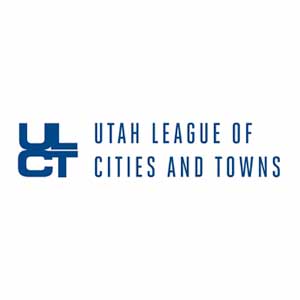Sen. Lincoln Fillmore, R-South Jordan, told the Governor’s Office’s Unified Economic Opportunity Commission on Wednesday what he’s planning to include in his “attainable housing bill,” which has not yet been made public as it’s being drafted.
The bill, Fillmore said, includes some “big, bold policy solutions” aimed at helping address Utah’s housing shortage.
“Everything that we’re trying to do here is about increasing supply to match the very high demand that Utah’s very strong economy has created,” Fillmore said.
First, the bill would change the way cities would be required to handle subdivision plans. The bill, he said, would “streamline” and “make uniform and predictable the process by which people who are building affordable housing … get those to the market faster.”
Under the bill, there would be an “early stage legislative approval” of a subdivision plan. “But then once that approval happens, the developer can go forward knowing, ‘My plan is approved. I don’t have to go back to this municipal authority every time … I want to just implement what’s already been approved,'” Fillmore said.
Currently, subdivision plans could be subject to several public hearings after initial approval. Fillmore’s bill would cut that down to one public hearing opportunity, at the very beginning of the process. It would also make clear the implementation of an approved plan is an administrative function, and therefore not subject to public hearings.
“It really will streamline the process and make it much more predictable for developers and shorten the amount of time it takes to get such projects to market,” Fillmore said. “Time being money, we hope that also has an impact on reducing the cost of housing,” Fillmore said.
He added the bill would also “take that same concept and apply it to other kinds of development,” like station area plans, or projects oriented around transit hubs.
South Jordan Mayor Dawn Ramsey, who sits on the Unified Economic Opportunity Commission, thanked Fillmore for his work, and added she wanted to make clear that the provision to streamline the subdivision approval process would still allow for an open process and public hearing “at the beginning of the process.”
“There’s absolutely still public input, there’s still an open process at the beginning, but once this project is approved, then yes, it becomes administrative and it just moves forward,” she said.
Weber County Commissioner Gage Froerer also spoke in favor of streamlining subdivisions, saying it would provide opportunity for the public to weigh in on a proposed project, “but at the same time not (give) the public three swings at the bat to derail a development.”
Cameron Diehl, executive director of the Utah League of Cities and Towns, told the Deseret News in a statement the proposal to change the process for how cities administer subdivisions “will positively impact all new housing development in Utah.”
“We think this proposal will improve the efficiency and predictability around the subdivision process while still respecting the role of city leaders in planning our communities.”
We think this proposal will improve the efficiency and predictability around the subdivision process while still respecting the role of city leaders in planning our communities.
–Cameron Diehl, executive director of the Utah League of Cities and Towns
Second, Fillmore’s bill would also seek to sharpen Utah’s teeth when it comes to punishing cities that haven’t included moderate-income housing into their city plans. Currently, Utah law punishes cities that fail to adopt or make progress on their moderate-income housing plans by making them ineligible for transportation investment fund dollars, or state money that’s set aside for larger regional projects.
However, Fillmore said that can be sometimes problematic. “We would be in a situation where we might be holding Lindon hostage for Orem’s failure to make progress on their housing plan. If Orem can’t get funding, that just creates more traffic problems in Lindon and in Provo.”
So, Fillmore said he’s aiming to create a penalty that’s “more targeted to cities,” by withholding state money for road improvements known as Class B and C funds.
Additionally, Fillmore said legislators will consider making clarifying changes to the Utah law passed in 2021 that sought to break down regulatory barriers for accessory dwelling units, also known as mother-in-law apartments.
“We just want to tighten up the language to make sure we’re hitting the mark on accessory dwelling units,” Fillmore said.
Last week, House Speaker Brad Wilson, who has worked in real estate as a commercial developer, told the Deseret News in an interview last week he believes there need to be free market solutions to Utah’s housing shortage and affordability crisis.
“The biggest challenge in my opinion, still, is there are many cities that are blocking the ability for market-based solutions to be built in their cities,” Wilson, R-Kaysville, said. “There’s demand for product, for types of housing in their cities, and the cities don’t allow it to be built.”
On Wednesday, Wilson also expressed support for a proposal that was presented to the Unified Economic Opportunity Commission by his right hand-legislator, House Majority Leader Mike Schultz, R-Hooper.
The proposal would be to create “limited infrastructure districts,” or a tool to allow landowners to form a district (with unanimous consent of all landowners) to access financing for public infrastructure for projects that have been approved by cities. The debt issued to bondholders in such a district would be repaid with a one-time assessment on each property of no more than one-third of the finished value of that property or properties, not an ongoing levy on taxpayers or homeowners like in public infrastructure districts.
Ty McCutcheon, founder and principal of development company Third Cadence, accompanied Schultz and helped explain nuances to the proposed legislation, which is still being drafted. He said the aim is to help assist development of properties that currently lack expensive infrastructure such as water, sewer and roads.
McCutcheon said there are “tens of thousands of entitled lots across the state, specifically in high-growth areas of the state, that haven’t been built on. And as we dig into that we recognize one of the main reasons is there are thousands of those lots that don’t have enough infrastructure to actually be buildable today.”
“The goal is to open those areas up, make those lots of land buildable today, so that we can further shrink that housing gap,” he said.
The goal is to open those areas up, make those lots of land buildable today, so that we can further shrink that housing gap.
–Ty McCutcheon
Creating limited infrastructure districts “pushes that (infrastructure) burden to the development community” while also creating “a mechanism for it to be accomplished,” McCutcheon said
The proposal, he said, would not empower these districts with land use or zoning authority, but simply act as a financing tool. “So this tool is not meant to run around those local controls,” McCutcheon said.
The goal is to help facilitate more development in order to better balance Utah’s housing market by increasing supply. McCutcheon said states that face a “huge housing gap, like some areas of California,” are the least successful at providing low-income housing, whereas in other states, like Texas, that are closer to a “housing equilibrium” it’s a “much easier effort to provide housing for those lower-income households.”
“Our view is we can get the overall equilibrium to come closer to balance, it will make our efforts to house the most vulnerable all the easier, because the spread between what the market can deliver and what will need to be invested in by public entities shrinks,” he said.
Wilson applauded the proposal. He has personal experience in his own development work with the challenges of developing lots that lack public infrastructure.
“One of the biggest challenges, because I faced it, (and) I know developers that are much bigger than I was are facing, is they’ve got their lots entitled but they can’t get the infrastructure in without some kind of tool like this,” Wilson said. “So if we’re serious about really fixing all these problems … we can’t just focus on getting lots entitled. We’ve got to work on the entire delivery mechanism.”
Wilson called it a “very important issue” and called for the Unified Economic Opportunity Commission to favorably recommend the proposal and encourage the Utah Legislature to hear and discuss the concept. The commission voted to approve his motion.
Schultz said it’s a “much-needed improvement.”
“It’s kind of sad to see what’s happening right now,” Schultz said. “We’re forcing our kids into apartments, and our grandkids. … So this helps achieve the American dream with home ownership.”
Gov. Spencer Cox, who serves as chairman of the Unified Economic Opportunity Commission, said he “could not endorse this more. I’m very excited and you have our full support.”


































